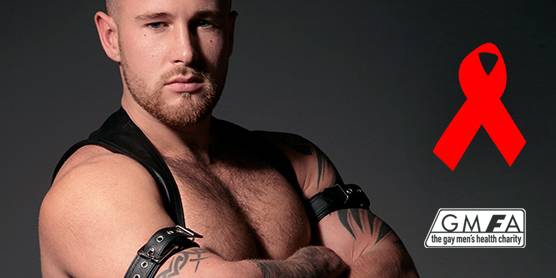World AIDS Day: Why we need to rethink HIV prevention

from
Recon News
23 November 2016
By Ian Howley
[This article originally appeared in FS Magazine, produced by GMFA]
I was born in 1984. I know, I know, if you're older than me you've already rolled your eyes so far back in your head you've just won gold at the 'Eye Rolling Olympics', hear me out. I was born in 1984. I obviously don't remember much of that whole decade. It wasn't until the mid 1990s that I learned about AIDS and HIV. I had no idea what it was, how you 'got it' or just how serious it was around the time I was born. So it's difficult for me to think of HIV in the same way that a lot of older gay men do. I remember once asking my mother what HIV and AIDS were. She told me 'It's something that happens in other countries, you don't need to worry about'. In fairness to her I was growing up in a small little town in the middle of Ireland. I said OK and continued to eat my packet of cheese. Enough said.
Fast forward to 2016 and so much has changed, not just for me - now leading a gay men's health charity. We've come so far in the terms of where we are in HIV prevention. Gone are the days of the tombstone adverts. Now we live in an age where the majority of gay and bisexual men living with HIV in the UK have the condition under control - 95% of people on treatment are undetectable. Recent data from the PARTNER study showed that there were no transmissions of HIV by anyone living with the virus who was on medication and undetectable. So, if that's the case, why are we still seeing high numbers of HIV infections?
When I started working in LGBT health I was shown an HIV prevention campaign, which was produced by another organisation. I was asked what I thought about it. I said there's no 'why'. I got some puzzled looks. "Why? Can you explain?". My reason was that we just assume men know why they have to wear a condom or why they should go and get tested. I said there was no explanation to tell anyone why they should want to remain HIV-negative. And thus I opened a door to a question that stumped a few people.
Ask yourself, why would you want to remain HIV-negative? We're told all the time to try and avoid HIV but when men do become HIV-positive they are told not to worry, that it'll be fine, that they will lead a near to normal life. So I go back to my original question, why? If we are living in a world where HIV can have little impact on your overall health once managed, why do we put so much effort into keeping gay men HIV-negative? Personally, I feel that we have got stuck in a bubble of telling men to 'just wear a condom', or 'get tested', and even 'take PrEP'. There's a lot of statements and not a lot of reason. Assuming that men know why they should remain HIV-negative is part of the problem.
HIV prevention is about so much more than telling someone to wear a condom, to test, to take PrEP. It's also about self-esteem, self worth, mental health and empowerment. If you don't care about yourself, why would you care about remaining HIV-negative? And this is where HIV prevention has to change. We need to step back and think about how do we approach this. We can shout at you about PrEP as much as we like and we may even convince you to go on it. But will you take it as prescribed if you don't care about yourself? Will you care about condom use after you've had six beers, two vodkas and a shitty day at work? Life as a gay man is so much more than HIV. Sometimes we forget that.
How many men wake up in the morning and think about HIV or STIs? How many, when horny, are thinking about the consequences of not using a condom? How many are thinking 'it could happen to me?' The majority of us are thinking about work, paying bills, going on dates, getting hammered at the weekend, dealing with a needy partner or a break-up. Life is full of different challenges and we need to address that there's more to gay men's health than HIV.
The game has changed and we need to change tactics. If we are to finally win the fight against HIV it's not going to be down to just PrEP or condoms or testing. It's going to be when we, as a community, start to value our own lives and see our self worth. It will be when we work on our self-esteem and make sure we look after the issues we face in our day-to-day lives. Remaining HIV-negative is just one part of the battle to be healthy. Matthew Hodson formally of GMFA once said in the pages of this magazine, "We are not equal until we have full health equality." And it's true.
SHARE

